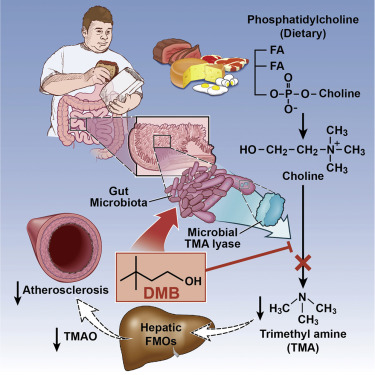It is my moral duty to continue to keep you informed on the dramatic effects our diet has on practically ALL organs of the body. This is mostly mediated by the micro-organisms that live in your gut. It is that simple. This blog is to continue to share the dramatic findings that are not getting to the public “for some reason.” At least read the titles…
The human microbiome and the future practice of medicine
JAMA 2-15;314:1127
Non-lethal Inhibition of Gut Microbial Trimethylamine Production for the Treatment of Atherosclerosis
J Cell Volume 163, Issue 7 , p1585–1595, 17 December 2015
“Trimethylamine (TMA) N-oxide (TMAO), a gut-microbiota-dependent metabolite, both enhances atherosclerosis in animal models and is associated with cardiovascular risks in clinical studies. Here, we investigate the impact of targeted inhibition of the first step in TMAO generation, commensal microbial TMA production, on diet-induced atherosclerosis. A structural analog of choline, 3,3-dimethyl-1-butanol (DMB), is shown to non-lethally inhibit TMA formation from cultured microbes, to inhibit distinct microbial TMA lyases, and to both inhibit TMA production from physiologic polymicrobial cultures (e.g., intestinal contents, human feces) and reduce TMAO levels in mice fed a high-choline or L-carnitine diet. DMB inhibited choline diet-enhanced endogenous macrophage foam cell formation and atherosclerotic lesion development in apolipoprotein e−/− mice without alterations in circulating cholesterol levels. The present studies suggest that targeting gut microbial production of TMA specifically and non-lethal microbial inhibitors in general may serve as a potential therapeutic approach for the treatment of cardiometabolic diseases.”

Immunotherapy Meets Microbiota
J Cell Volume 163, Issue 7 , p1561, 17 December 2015
“This issue’s Select focuses on the recent development in the understanding of how gut microbiota impact the anti-cancer efficacy of immune checkpoint blockers.”
Bifidobacterium longum may reduce stress and improve cognition
Society for Neuroscience 2015 Chicago. J, Neurology News Dec 2015 p22


